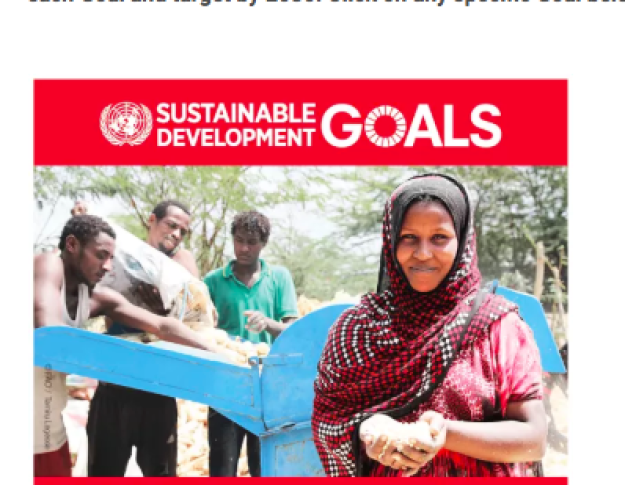
The development and adoption of emerging technologies such as artificial intelligence (AI), the internet of things (IoT) and big data have accelerated exponentially in the past few years. These technologies have presented opportunities, but also challenges and risks, to internet users worldwide. During the 2018 Internet Governance Forum (IGF) in Paris, the contribution of these technologies towards the achievement of the 2030 Agenda for Sustainable Development was highlighted.
During the session on Artificial Intelligence for Human Rights and SDGs, different stakeholders offered their unique understanding of the impact of applying big data and AI technologies for measuring and monitoring indicators and targets for the 17 Sustainable Development Goals (SDGs). For example, big data presents opportunities for improved programme planning and implementation based on real-time feedback generated by millions of users and devices around the world. When combined with other traditional data sources like surveys, big data has the potential to shed light on societal trends and global patterns.
Likewise, the potential for AI to boost productivity and economic growth is much larger than that of previous general-purpose technologies. On average, the current simulation indicates that it could boost world output by USD 13 trillion by 2030, lifting GDP by 1.2% a year. It also facilitates access to information and freedom of expression and can be used to detect human rights violations, discrimination, unfair treatment and biases that are normally linked to decisions made by human beings. It was argued that this presents great potential to foster open and inclusive societies and promote peace, gender equality and justice.
Emerging technologies pose human rights concerns too
On the other hand, various concerns associated with the deployment of these emerging technologies were also raised. With more than 50% of the world population offline, the majority of whom are living in developing countries, particularly in Africa, many doubted how these technologies can promote inclusive and sustainable development. How can we all move forward when we are leaving 50% behind? Having parts of the world that lack basic connectivity will hinder the adoption and application of new technologies in developing countries.
Similarly, emerging technologies can perpetuate and reinforce existing human rights violations as well as enable new ones. The fact that devices and sensors can collect massive amounts of personal data raises critical issues related to privacy and cybersecurity. The use of information obtained through big data, for example, is one of the major problems regardless of whether the information is exposed consensually or non-consensually by millions of users. Likewise, AI mass data processing poses potential threats to human rights, security and social cohesion.
The stakeholder dialogue identified several best practices that should be taken into consideration when applying digital technologies for sustainable development. They called for collaboration among different stakeholders such as government officials, technologists, civil society, academics and others to ensure that these technologies are deployed in ways that protect user privacy and security, and network resiliency while fostering innovation. Stakeholders should communicate openly about the impact new technologies have on the public and existing networks and find ways to work together to develop future-looking policies.
When systems, products and services that leverage big data and AI are being developed and deployed, ethical considerations and human rights should be taken into account from the outset. Awareness among users of the data generated by these technologies and knowledge of the benefits and risks deriving from them are also key. The forum also called for a people-centred digital transformation which takes into account all members of society including youth, women, and people with disabilities. This should not stop at examining how people can be reskilled and economically supported for the future, but how they can be prepared to be good users, content creators and innovators.
Loyce Kyogabirwe is a project officer at the Collaboration on International ICT Policy for East and Southern Africa (CIPESA). She participated in the IGF 2018 with the support of a travel grant from the APC Member Exchange and Travel Fund (METF).